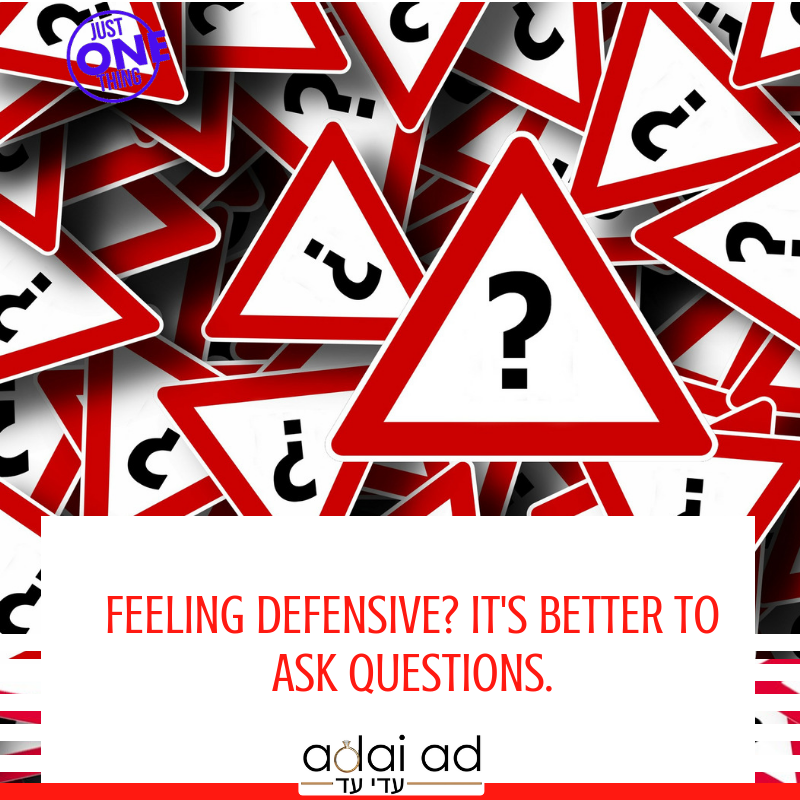In a situation, where you might have responded with defensiveness, you’d do much better by asking questions. Ask with genuine curiosity and respect to show that you are eager to learn and know, to better understand. The question should be an invitation for the other person to share what is going on; so it should create a sense of safety. Your tone matters. –>”What do you mean when you say [whatever]?”
–> “Are you saying that because you want me to [stay]?” (this can help you check out your own assumption about the other’s motivation)
–> “Are you trying to get me to agree with you or do want to hear my perspective on this?”(this can help the other person see what is going on in the conversation)
–> You can ask about any thought, feeling, belief or behavior that you think might be motivating the person. “Did you feel hurt when I said that?”
–> “What did you think my motive was in asking you that question/ saying [whatever]?” (this can help you see how the other perceives you and gives you an opportunity to clarify.)
–
Sometimes it might be helpful to ask permission to ask a question: “Is it alright if I ask you a question about what you just said?”
–
Ask questions to better understand the other person’s
– values (what they believe)
– emotions (what they feel)
– reasoning (what they think)
– behavior (what they do) -based on “Taking the War out of Words” by Sharon Strand Ellison


